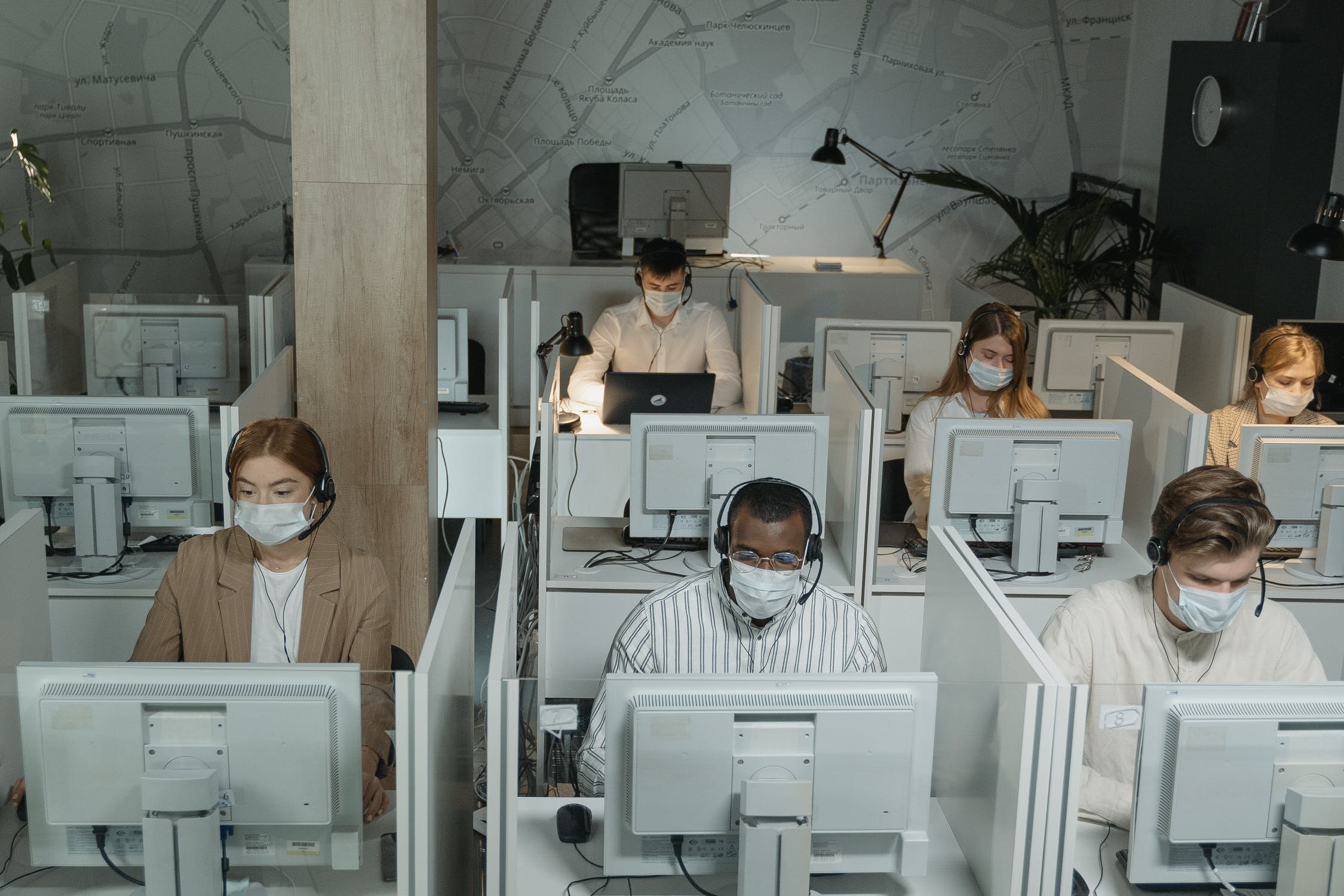Coronavirus compliance is complex. As more and more employers contemplate returning to the office, HR teams might struggle with a particularly complicated issue: mandating employees to prove COVID-19 vaccination. Learn more about how this works and why employers should avoid this if possible.
Can Employers Require Proof of COVID-19 Vaccination?
Yes, employers can require proof of COVID-19 vaccination. It’s also okay to ask employees to get vaccinated.
Here’s why: According to the EEOC guidelines regarding COVID-19 vaccination, asking for proof that an employee has received the vaccine isn’t likely to elicit disability-related information. Likewise, the vaccination isn’t considered a medical exam, which means that employers can ask for proof that a teammate has received the vaccine.
However, in an article written by attorneys at Much Shelist, P.C. and published in The National Law Review, the authors advise employers to be careful about asking employees why they didn’t receive the vaccine. While this appears to be a contradiction, it\’s actually a little trickier than it seems.
Put most simply, asking this question could elicit employees to divulge medical or disability-related information that puts employers at risk of disability-related inquiries under the Americans with Disabilities Act (ADA).
Should Employers Require Proof of COVID-19 Vaccination?
Probably not, depending on the organization. If it’s risky to request that employees explain why they didn’t get a vaccine, the next question HR should ask is should employers actually require proof of vaccination from their employees?
Human resources professionals should keep in mind that depending on the industry, proof of vaccination may be assumed or expected—or neither. Consider two different examples:
-
Organizations that employ people who work in the healthcare industry—particularly those with daily patient interactions—may be more inclined to require proof of vaccination.
-
On the other hand, an organization that employs people who rarely interact with customers or coworkers in close settings may be less inclined to require proof of vaccination.
However, just because an organization is legally permitted to do something doesn’t necessarily mean that it should be done.
Three Reasons to Avoid Requesting Proof of COVID-19 Vaccination
COVID-19 compliance is complex as it is. With this in mind, requiring employees to prove coronavirus vaccination adds another layer of difficulty for HR professionals.
Consider three reasons to avoid requesting proof:
1. Uncomfortable Accommodations for Employees Who Don\’t Get the Vaccine
Most workers in the U.S. are at-will, meaning they can be terminated at any time and for any legal reason (or no reason at all). So, in theory, an organization could fire a worker on the spot for not providing proof of vaccination.
Unsurprisingly, legal experts don’t recommend this approach. Instead, the same attorneys at Much Shelist, P.C. say that employers shouldn’t fire employees right away if they refuse to get vaccinated and can’t return to the workplace.
Let’s say that employees refuse to provide proof instead. If you stick to a policy that says employees must be vaccinated before returning to the office, the result is the same—they aren’t coming into the office. Attorneys at Much Shelist, P.C. encourage organizations to continue to explore if any reasonable accommodations can serve as viable alternatives—unless undue hardship exists.
In reality, this might make returning to the office even more complicated—especially for smaller organizations that decide to make accommodations for employees who refuse to provide proof of vaccination. Possible accommodations could include employees continuing to work remotely for the foreseeable future or possibly shifting responsibilities into a role that requires less face-to-face interaction with coworkers or customers.
In both scenarios, other teammates could perceive this as an unfair treatment for someone who “didn’t follow the rules.”
2. Employees Quitting in Response to a Mandate
COVID-19 vaccination is a political issue. The fact of the matter is that people wouldn\’t like it if their employer required them to provide proof of vaccination. They might even quit as a result.
Plenty of people quit for all sorts of reasons, though. So, why avoid this particular issue? HR needs to consider if it’s really worth losing one, two, maybe even three or four employees to verify that everyone in your office is vaccinated.
If this does happen, HR has an entirely different problem in its hands. Bad press, maybe if the teammate or teammates are especially disgruntled. Costly turnover and recruitment. Projects were left unfinished, and other employees stuck to pick up the slack—all of this over an issue that can be handled differently.
3. Tricky Compliance Issues Storing Vaccination Information
There’s also the administrative component. Consider all logistical woes that could result in an organization deciding to require employees to submit proof of vaccination.
These questions include:
-
How would HR store this information?
-
Would it be on a spreadsheet saved to a computer? Or on the organization’s servers?
-
How much information would HR collect?
-
Would HR track the type of vaccine employees got or just that they got one?
-
What about protecting this information?
Likewise, the process of actually submitting proof proves another obstacle for teams, especially for smaller organizations. Would employees show their vaccination cards in person or submit photos of them online? Not to mention verifying this information.






